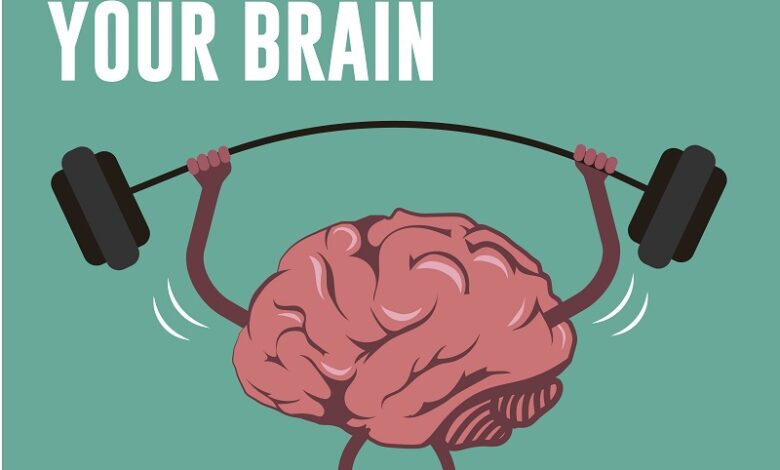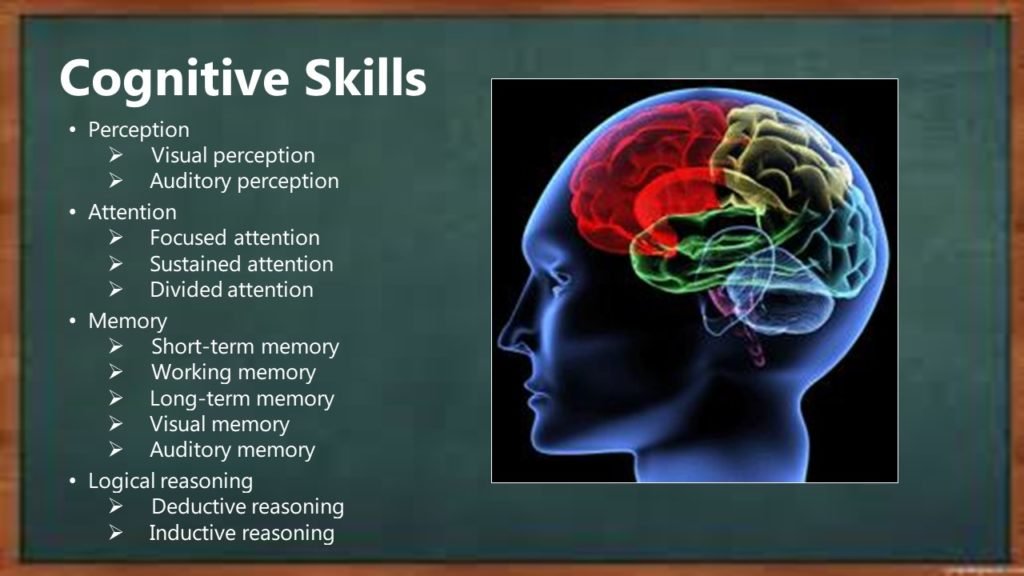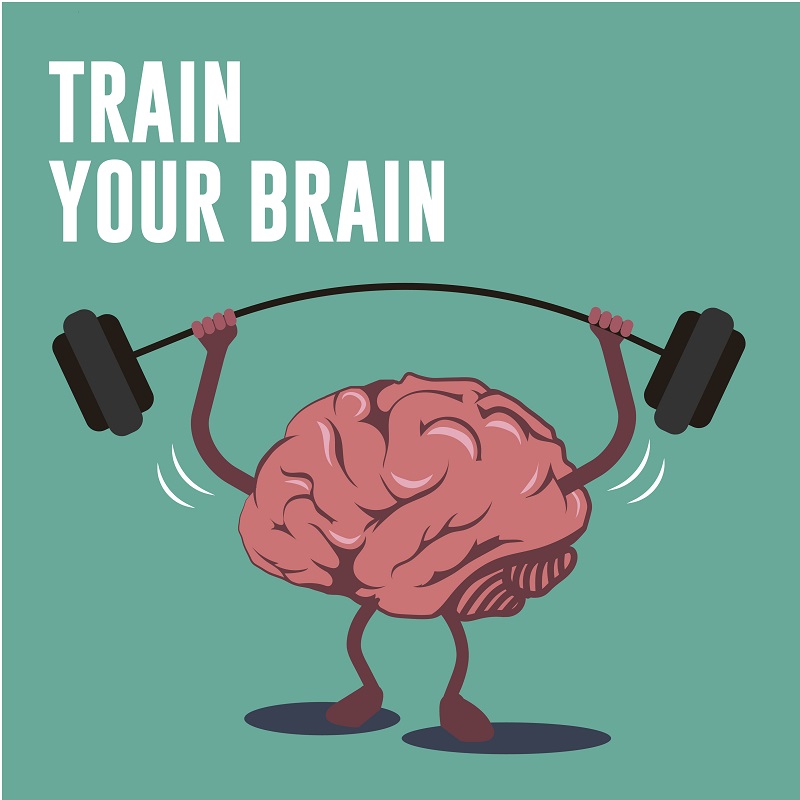
Does Brain Training Boost Your Cognitive Skills?
Does brain training increase your cognitive abilities? This question has sparked debate among scientists and the general public alike. Brain training, a popular approach to cognitive enhancement, involves engaging in exercises designed to improve memory, attention, processing speed, and other mental functions.
From apps like Lumosity and Elevate to specialized programs like Cogmed, brain training offers a tantalizing prospect: the ability to sharpen our minds and potentially stave off age-related cognitive decline. But does the science actually support these claims?
This blog delves into the world of brain training, exploring the scientific evidence, potential benefits, and limitations. We’ll examine the research behind brain training, discuss its potential impact on cognitive function, and consider the ethical implications of these emerging technologies.
Brain Training

Brain training is a form of mental exercise designed to improve cognitive abilities. It involves engaging in activities and tasks that challenge your brain, aiming to enhance its performance in areas such as memory, attention, and problem-solving.
Popular Brain Training Programs and Apps
Brain training programs and apps have become increasingly popular, offering a variety of exercises and games designed to stimulate different cognitive functions. These programs often employ a gamified approach, making the training process engaging and enjoyable. Some of the most well-known brain training programs and apps include:
- Lumosity:Lumosity is a popular brain training program that offers a range of exercises targeting memory, attention, speed, and problem-solving. It uses a personalized approach, tailoring exercises to individual needs and progress.
- Elevate:Elevate is another popular brain training app that focuses on improving cognitive skills through a variety of games and exercises. It offers a personalized training plan and tracks progress over time.
- Cogmed Working Memory Training:Cogmed is a clinically validated program designed to improve working memory, a crucial cognitive function involved in holding information in mind and manipulating it. It uses a structured approach with daily training sessions.
Types of Cognitive Skills Targeted by Brain Training
Brain training programs often target a variety of cognitive skills, aiming to enhance their performance and improve overall brain function. These skills include:
- Memory:Brain training exercises can help improve both short-term and long-term memory. They often involve tasks such as remembering lists of words, recalling images, or solving memory puzzles.
- Attention:Attention is the ability to focus on a specific task and ignore distractions. Brain training exercises can help improve attention span, selective attention, and divided attention.
- Processing Speed:Processing speed refers to the speed at which the brain can process information. Brain training exercises can help improve reaction times, information processing, and decision-making speed.
- Reasoning and Problem-Solving:Brain training exercises can help improve logical reasoning, problem-solving skills, and the ability to think critically. They often involve tasks such as solving puzzles, identifying patterns, or making deductions.
Scientific Evidence: Does Brain Training Increase Your Cognitive Abilities
The effectiveness of brain training in enhancing cognitive abilities has been a subject of intense research and debate. While some studies have shown promising results, others have yielded more mixed findings. It is crucial to examine the scientific evidence carefully to understand the potential benefits and limitations of brain training.
Key Studies and Findings
Several studies have investigated the impact of brain training on various cognitive functions, including memory, attention, and executive function.
- The ACTIVE Study:This large-scale, randomized controlled trial involved over 2,800 participants aged 65 and older. The study found that participants who completed a comprehensive brain training program showed significant improvements in cognitive performance, particularly in speed of processing and reasoning.
The effects were sustained for at least 10 years, suggesting long-term benefits.
- The Cogmed Working Memory Training Study:This study examined the effects of a computerized working memory training program on children with ADHD. The results indicated that the training program led to significant improvements in working memory capacity and academic performance.
- The NeuroNation Study:This study involved over 10,000 participants who used a commercially available brain training app. The researchers found that participants who engaged in regular brain training showed improvements in fluid intelligence, memory, and attention.
Limitations of Existing Research
While the research on brain training is promising, it is important to acknowledge several limitations:
- Transfer Effects:One of the main criticisms of brain training is that the improvements observed in training tasks may not generalize to real-world cognitive performance. More research is needed to understand the extent to which brain training can transfer to other cognitive domains.
While brain training can sharpen your mind, fueling your body with healthy foods is equally important. A balanced diet helps support optimal brain function, and who says you can’t indulge in pizza? Check out 11 healthy pizzas under 400 calories for some delicious and guilt-free options.
After all, a happy and healthy brain needs a happy and healthy stomach!
- Sample Size and Diversity:Many studies have been conducted on relatively small samples, and the participants often represent a specific demographic group. Further research is needed to determine the effectiveness of brain training across diverse populations.
- Quality of Brain Training Programs:The effectiveness of brain training can vary significantly depending on the quality of the program. It is crucial to choose programs that are scientifically validated and designed by experts in cognitive neuroscience.
Areas for Further Investigation
Future research on brain training should focus on:
- Investigating the mechanisms of brain plasticity:Understanding how brain training alters brain structure and function is essential for optimizing its effectiveness.
- Examining the long-term effects of brain training:More research is needed to determine the long-term impact of brain training on cognitive function and overall well-being.
- Developing personalized brain training programs:Tailoring brain training programs to individual needs and cognitive strengths and weaknesses could enhance their effectiveness.
Benefits of Brain Training

Brain training, with its focus on exercises designed to challenge and improve cognitive skills, holds the promise of enhancing various aspects of our mental abilities. While research continues to explore the full extent of its benefits, existing evidence suggests that brain training can contribute to improved cognitive function, potentially reducing the risk of cognitive decline and enhancing learning abilities.
Improved Cognitive Function
Brain training programs often target specific cognitive domains, such as memory, attention, processing speed, and problem-solving. By engaging in these exercises, individuals may experience improvements in their overall cognitive function.
While brain training can help sharpen your focus and memory, it’s also important to fuel your brain with healthy foods. Eating a diet rich in fiber can actually support cognitive function by regulating blood sugar levels and reducing inflammation, which are both crucial for brain health.
If you’re looking for delicious and satisfying high-fiber meal ideas, check out this guide to High Fiber Meals for Weight Loss: A Guide to Feeling Full and Slim. By combining brain training with a healthy diet, you can optimize your overall cognitive performance and achieve your health goals.
For example, studies have shown that training in working memory tasks can lead to improvements in both working memory capacity and fluid intelligence, which is the ability to reason and solve problems.
This enhancement in cognitive function can have a positive impact on various aspects of daily life, from academic performance and professional productivity to social interactions and overall well-being.
Reduced Risk of Cognitive Decline, Does brain training increase your cognitive abilities
As we age, our cognitive abilities naturally decline, increasing the risk of age-related cognitive impairments such as mild cognitive impairment (MCI) and Alzheimer’s disease. Brain training has been suggested as a potential strategy to mitigate these risks.
Studies have shown that individuals who engage in regular brain training exercises may experience slower cognitive decline compared to those who do not.
This is because brain training may help to maintain and strengthen the neural pathways associated with cognitive function, potentially delaying the onset of cognitive decline.
Enhanced Learning Abilities
Brain training can also enhance learning abilities by improving cognitive flexibility, attention, and memory. These improvements can make it easier to acquire new information, retain knowledge, and apply learning to new situations.
For instance, training in attention tasks can help individuals focus better and filter out distractions, leading to improved comprehension and retention of information.
This can be particularly beneficial for students, professionals, and individuals seeking to learn new skills or expand their knowledge base.
Real-World Applications
Brain training has potential applications in various real-world settings, addressing specific needs and challenges:
- Individuals with Cognitive Impairments:Brain training programs have been explored as a therapeutic tool for individuals with cognitive impairments, such as dementia, stroke, and traumatic brain injury. These programs aim to improve cognitive function, enhance daily living skills, and promote overall well-being.
- Healthy Aging:Brain training can be a valuable tool for promoting healthy aging, helping individuals maintain cognitive function and reduce the risk of cognitive decline.
- Workforce Development:Brain training can be incorporated into workforce development programs to enhance employee performance, particularly in demanding roles that require high cognitive function, such as decision-making, problem-solving, and multitasking.
Considerations and Cautions

While brain training holds promise for enhancing cognitive function, it’s crucial to approach it with a balanced perspective. While it can be beneficial, there are potential drawbacks and factors to consider before diving in.
Potential Drawbacks of Brain Training
Brain training, while potentially beneficial, is not a magic bullet. It’s important to be aware of potential drawbacks and limitations.
- Over-reliance on training programs: Some individuals may become overly reliant on brain training programs, neglecting other crucial aspects of cognitive health, such as physical activity, social interaction, and a healthy diet.
- Sustained effort is required: Brain training requires sustained effort and commitment. Consistent engagement is crucial to see noticeable improvements, and inconsistent participation may yield minimal results.
- Potential for placebo effects: The perceived benefits of brain training may sometimes be influenced by placebo effects. The belief that a program is working can lead to improvements even if the program itself has no real effect.
Comparing Brain Training with Other Cognitive Enhancement Strategies
Brain training should be viewed within the broader context of cognitive enhancement strategies.
While brain training can certainly sharpen your focus and memory, don’t underestimate the impact of lifestyle choices on cognitive function. A healthy body often means a healthy mind, and that’s where adopting simple, sustainable habits comes in. Check out these 10 Simple Changes That Lead to Weight Loss to see how improving your physical well-being can positively influence your mental sharpness, too.
After all, a well-nourished brain is a more resilient one.
- Physical Exercise: Studies have shown that regular physical activity can improve cognitive function, particularly in areas like memory, attention, and processing speed. Exercise promotes blood flow to the brain, which can enhance neural connections and support cognitive health.
- Healthy Diet: A balanced diet rich in fruits, vegetables, and whole grains can provide essential nutrients that support brain function. Foods high in antioxidants and omega-3 fatty acids are particularly beneficial for cognitive health.
Factors Influencing the Effectiveness of Brain Training
The effectiveness of brain training can vary significantly depending on individual factors.
- Age: Brain training may be more effective for younger individuals who have more neuroplasticity, the brain’s ability to adapt and change. However, even older adults can benefit from brain training, though they may require more effort and time to see results.
- Cognitive Abilities: Individuals with existing cognitive impairments may experience greater benefits from brain training. However, it’s important to note that brain training is not a substitute for professional diagnosis and treatment.
- Motivation: Motivation plays a critical role in the effectiveness of brain training. Individuals who are highly motivated and committed to the program are more likely to see positive results.
Future Directions
The field of brain training is rapidly evolving, fueled by advancements in technology and a growing understanding of the brain’s plasticity. Emerging trends and technologies are paving the way for innovative approaches to cognitive enhancement, with potential applications across various sectors.
Integration of Virtual Reality and Artificial Intelligence
The convergence of virtual reality (VR) and artificial intelligence (AI) is revolutionizing brain training. VR offers immersive and engaging environments that can simulate real-life scenarios, enhancing the learning experience. AI, on the other hand, can personalize training programs based on individual needs and progress.
- VR-based brain training platforms are increasingly incorporating AI-powered adaptive algorithms that adjust the difficulty level and content in real-time, providing personalized and tailored experiences.
- AI can analyze user performance data and provide feedback, identifying areas for improvement and suggesting specific exercises to target those areas.
- AI-powered virtual coaches can guide users through training programs, offering encouragement and motivation.
Applications in Education, Healthcare, and Workplace Performance
Brain training technologies have the potential to transform various domains:
- Education:Brain training can be integrated into educational curriculums to enhance learning, memory, and attention in students of all ages.
- Healthcare:Brain training can be used as a therapeutic tool for individuals with cognitive impairments, such as Alzheimer’s disease, stroke, and traumatic brain injury. It can help improve cognitive function and quality of life.
- Workplace Performance:Brain training can enhance cognitive skills like decision-making, problem-solving, and creativity, leading to improved productivity and job performance.
Ethical Considerations
The development and use of brain training technologies raise ethical concerns that need to be addressed:
- Privacy:Data collected during brain training sessions, including personal information and cognitive performance, raises concerns about privacy and data security.
- Equity:Access to brain training technologies may be uneven, potentially widening existing inequalities in cognitive abilities.
- Overuse and Dependence:Excessive reliance on brain training technologies could lead to a decline in natural cognitive abilities and a dependence on external tools.
Summary
While brain training shows promise for enhancing cognitive function, it’s crucial to approach it with realistic expectations. While some studies suggest benefits, more research is needed to fully understand its long-term effects and to determine the optimal training strategies for different individuals.
Ultimately, brain training may be one tool in a toolbox of cognitive enhancement strategies, alongside healthy lifestyle choices, mental stimulation, and social engagement. As we continue to explore the potential of brain training, it’s essential to maintain a critical and informed perspective.


